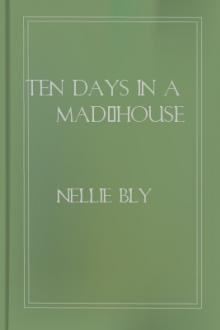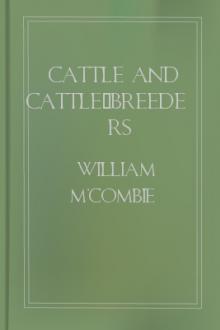Around the World in Seventy-Two Days by Nellie Bly (bill gates book recommendations .TXT) 📕

- Author: Nellie Bly
- Performer: -
Book online «Around the World in Seventy-Two Days by Nellie Bly (bill gates book recommendations .TXT) 📕». Author Nellie Bly
Walking up the beach, sinking ankle deep in the sand at every step, we came to the main street. Almost instantly we were surrounded by Arab boys who besought us to take a ride on the burros that stood patiently beside them. There were burros of all colors, sizes and shapes, and the boys would cry out, most beseechingly, “Here’s Gladstone! Take a ride; see Gladstone with two beautiful black eyes.”
This they would cry in such a soft plaintive way that one felt the “two beautiful black eyes” made the animals irresistible.
If one happened to be of a different political belief and objected to riding the Gladstone hobby, as it were, a choice could be made of almost any well-known, if not popular name. There were Mrs. Maybricks, Mary Andersons, Lillie Langtrys, and all the prominent men of the time.
I knew all about burros, having lived for some time in Mexico, but they proved to be quite a novelty to many of the passengers, almost all of whom were anxious to take a ride before returning to the boat. So, as many as could find animals to ride, mounted and went flying through that quaint, sleeping town, yelling with laughter, bouncing like rubber balls on their saddles, while half-naked Arab boys goaded the burros on by short, urgent hisses, and by prodding them from behind with a sharp stick.
After seeing about fifty of our passengers started off in this happy manner, a smaller number of us went to a gambling house, and in a short time were deep in the sport of placing our English gold on colors and numbers and waiting anxiously for the wheel to go ‘round to see the money at last swept in by the man at the table. I do not think that any one of us knew anything about the game, but we recklessly put our money on the table and laughed to see it taken in by the man who gave the turn to the wheel.
There was another attraction in this place which helped to win a number of young men from that very expensive table. It was an orchestra composed of young women, some of whom were quite pleasing both in looks and manners.
The longer we remained at this gambling house the less money we had to spend in the shops. I went ashore with the determination not to buy anything as I was very anxious not to increase my baggage. I withstood the tempting laces which were offered at wonderfully low prices, the quaint Egyptian curios, and managed to content myself by buying a sun hat, as everybody else did; and a pugaree to wind about it, as is customary in the East.
Having bought a hat and seen all I cared to of the shops I went strolling about with some friends feasting my eyes on what were to me peculiarities of a peculiar people. I saw old houses with carved-wood fronts that would have been worth a fortune in America occupied by tenants that were unmistakably poor. The natives were apparently so accustomed to strangers that we attracted very little, if any attention, except from those who hoped to gain something from our visit. Unmolested we went about finding no occasion to use sticks on the natives. We saw a great number of beggars who, true to their trade, whined forth, with outstretched hands, their plaintive appeals, but they were not so intrusive or bothersome that they necessitated our giving them the cane instead of alms. The majority of these beggars presented such repulsive forms of misery that in place of appealing to my sympathetic nature, as is generally the case, they had a hardening effect on me. They seemed to thrust their deformities in our faces in order to compel us to give money to buy their absence from our sight.
While standing looking after a train of camels that had just come in loaded with firewood I saw some Egyptian women. They were small in stature and shapelessly clad in black. Over their faces, beginning just below the eyes, they wore black veils that fell almost to their knees. As if fearing that the veil alone would not destroy all semblance of features they wear a thing that spans the face between the hair and the veil down the line of their noses. In some cases this appears to be of gold, and in others it is composed of some black material. One Egyptian woman carried a little naked baby with her. She held it on her hips, its little black legs clinging to her waist much after the fashion of a boy climbing a pole.
Down at the beach we came upon a group of naked men clustered about an alligator that they had caught. It was securely fastened in some knotted rope, the end of which was held by some half dozen black fellows. The public water-carriers, with well filled goat-skins flung across their backs, we met making their way to the town for the last trip that day.
Darkness came on us very suddenly and sent us rushing off for our ship. This time we found the boatman would not permit us even to enter their boats until we paid them to take us across to the Victoria. Their price now was just double what they had charged to bring us to land. We protested, but they said it was the law to double the price after sunset.
They were just finishing the coaling when we reached the ship, but the sight we caught of the coal barges, lighted by some sputtering, dripping stuff, held in iron cages on the end of long poles, that showed the hurrying naked people rushing with sacks of coal up a steep gangplank, between the barges and the ship, was one long to be remembered. Nor were they working quietly. Judging from the noise, every one of them was yelling something that pleased his own fancy and humor.
The next morning I got up earlier than usual so anxious was I to see the famous Suez Canal. Rushing up on deck, I saw we were passing through what looked like an enormous ditch, enclosed on either side with high sand banks. We seemed to be hardly moving, which made us feel the heat very intensely. They tell me, that according to law, a ship must not travel through the canal at a speed exceeding five knots an hour, because a rapid passage of the ship would make a strong current that would wash in the sand banks. One gentleman, who had traveled all his life, helped us to pass some of the tedious, stifling hours in the canal by telling us the history of it.
It was begun in 1859 and took ten years to build. The work is estimated to have cost nearly �18,250,000, although the poor blacks that were employed to do the labor commanded the lowest possible wages. It is claimed that the lives of 100,000 laborers were sacrificed in the building of this canal, which is only 100 English miles, 88 geographical miles, 5 in length.
When first completed the width of the surface of the canal was three hundred and twenty-five feet, but the constant washing in of the banks has reduced it to one hundred and ninety-five feet. The bottom is said to be seventy-two feet wide and the depth is but twenty-six feet. The trip through the canal can be made in from twenty to twenty-four hours.
About noon of our first day in the canal we anchored in the bay fronting Ismailia. Here passengers were taken on, which gave us time to see the Khedive’s palace, which is built a little way back from the beach in the heart of a beautiful green forest. Continuing the journey through the canal we saw little of interest. The signal stations were the only green spots that met the eye, but they were proof of what could be done, even in this sandy desert by the expenditure of time and energy.
The one thing that enlivened this trip was the appearance of naked Arabs, who would occasionally run along the banks of the canal, crying in pitiful tones, “bahkshish.” This we understood meant money, which many of the kind hearted passengers would throw to them, but the beggars never seemed to find it, and would keep on after us, still crying, “bahkshish” until they were exhausted.
We passed several ships in the canal. Generally the passengers would call to the passengers on the other ships, but the conversation was confined mainly to inquiries as to what kind of a voyage had been theirs. We saw at one place in the canal, a lot of Arabs, both men and women, at work. Among them were a number of camels that were employed in carrying stone with which the laborers were endeavoring to strengthen the banks.
In the night the boat hung an electric light from the front, and by the aid of this light, moving it from side to side, were able to continue on their way. Before the introduction of electric head lights for this purpose, the vessels were always compelled to tie up in the canal over night, because of the great danger of running into the sand banks. In addition to making the trip longer, this stoppage added greatly to the discomfort of the passengers, who found that even the slow motion of the boat, helped, in a measure, to lessen the stifling heat that seemed to come from out the sand banks during the night as well as when the blazing sun was in the cloudless sky.
We saw, when near the end of the canal, several Arab encampments. They were both picturesque and interesting. First we would notice a small dull red fire, and between that fire and us we could see the outlines of people and resting camels. At one encampment we heard music, but at the others we saw the people either working over the fire, as if preparing their evening meal, or in sitting positions crouching about it in company with their camels.
Shortly after this we dropped anchor in the Bay of Suez. Hardly had we done so when the ship was surrounded by a number of small sail boats that, in the semi-darkness, with their white sails before the breeze, reminded me of moths flocking to a light, both from their white, winged-like appearance, and the rapid way in which numbers of them floated down on us. These sail boats were filled with men with native fruits, photographs and odd shells to sell. They all came on board, and among them were a number of jugglers. The passengers took very little interest in the venders, but all had a desire to see what was to be offered by the jugglers. There was one among them, a black man, who wore little else than a sash, a turban and a baggy pocket, in the lining of which he carried two lizards and a small rabbit. He was very anxious to show





Comments (0)